Rebecca Burton
Master's student, Science/Health Communications, University of Florida; freelance science writer
Moderating:
-
Saturday, November 2nd, 1:45 pm to 3:00 pm
Master's student, Science/Health Communications, University of Florida; freelance science writer
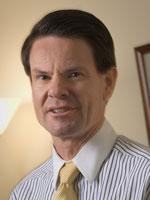
Director of the Brechner First Amendment Project, University of Florida
Clay Calvert is the Brechner Eminent Scholar in Mass Communication and Director of the Marion B. Brechner First Amendment Project at the University of Florida. He formerly served as the John and Ann Curley Professor of First Amendment Studies at the Pennsylvania State University, where he also co-directed the Pennsylvania Center for the First Amendment and served as interim dean of the Schreyer Honors College.
Clay has authored or co-authored more than 115 law journal articles on freedom of expression-related topics
He is co-author of a leading media law textbook and of the book Voyeur Nation: Media, Privacy, and Peering in Modern Culture.
Clay received his law degree from the University of the Pacific's McGeorge School of Law and then earned a Ph.D. in communication from Stanford University, where he also completed his undergraduate work with a B.A. in communication.
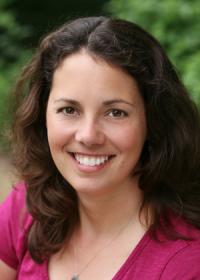
Senior editor, Discover
Siri Carpenter is a senior editor at Discover magazine, where she edits features and the monthly behavioral science column (Mind over Matter). She is also co-founder of The Open Notebook, a non-profit publication devoted to promoting excellence in science journalism.
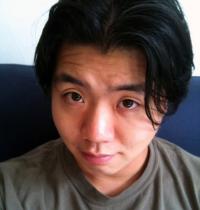
Freelance journalist
Charles Q. Choi is a science reporter who has written for Scientific American, The New York Times, Wired, Science, Nature, The San Diego Union-Tribune, Newsday, Popular Science and National Geographic News, among others. For his work, he has hunted for mammoth DNA in Yukon, faced gunmen in Guatemala, entered the sarcophagus housing radioactive ruins in Chernobyl and looked for mammal fossils in Wyoming based on the guidance from an artificial intelligence. In his spare time, Charles has traveled to all seven continents, including scaling the side of an iceberg in Antarctica, investigating mummies from Siberia, snorkeling in the Galapagos, excavating ancient Maya ruins in Belize, climbing Mt. Kilimanjaro, camping in the Outback and avoiding thieves near Shaolin Temple.
Author (latest title: How to Write Short: Word Craft for Fast Times), vice president and senior scholar, The Poynter Institute
Roy Peter Clark has been called "America's writing coach" as his stated mission is to help create "a nation of writers." Since 1977 he has taught writing to small children and to Pulitzer-winning authors from his mother ship, The Poynter Institute, a school for journalism and democracy in St. Petersburg, Florida. He is the author or editor of 17 books on writing, language, and journalism. The latest, all published by Little, Brown, are Writing Tools, The Glamour of Grammar, and Help! for Writers, which is now also a mobile app. His work has been featured on the Today Show, NPR, and the Oprah Winfrey Show. His latest book, published earlier this year, is How to Write Short: Word Craft for Fast Times.
Senior director of communications, UAB School of Medicine
Television Writer/Producer, Los Angeles
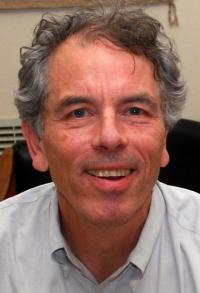
The New York Times
David Corcoran is the editor of Science Times, The New York Times’s weekly science section. He joined The Times in 1988 and has worked in a variety of positions, including education editor and deputy Op-Ed editor. He came to The Times after a 19-year career at The Record in North Jersey, where he was editor of the editorial pages. In 1976-77 he was a journalism fellow at Stanford University. As a writer, he reviewed restaurants in New Jersey from 2000 to 2010 for the Sunday Times. His poetry has been published in Podium and Barrow Street.
Science Times guidelines for freelancers (from David Corcoran):
Unfortunately, opportunities for new freelancers are quite limited. Most material in the section
comes from staff writers or regular contributors. We do look at articles and essays on spec, and
we make very occasional assignments for news features that catch our eye.
Here are a few things to keep in mind.
• The article should be newsy and timely. It should tell readers something they don’t already
know, and within the first few paragraphs it should answer the question “Why are you telling
me this now?”
• Topics can range widely over science and health, but bear in mind that important news
developments, including major findings reported in science and medical journals, are likely to
be covered by our staff writers. The best outside articles are those that make a reader (in this
case an editor) sit up and take notice, by calling attention to a surprising or underreported
development or trend.
• Articles generally run 500 to 1,500 words. Science Times pays $1 a word on publication.
Queries or pitches (one at a time, please) should run no more than 300 words.
• The pitch or cover letter should indicate whether the news has already been reported — in
The Times, the mainstream press (including Web sites, TV and radio) or scientific journals. A yes
answer does not necessarily mean we’re not interested, but we need to know what kind of
exposure the story has had.
Contact:
Queries and finished articles on medicine and health should be sent by e-mail to Mike Mason at
mmason@nytimes.com.
On other science topics, to David Corcoran at corcoran@nytimes.com.
North Carolina State University
Reporter, Wired
Nadia Drake is a science journalist at Wired. Before that, she was an intern and then on staff at Science News, covering astronomy. She has completed internships at Nature, the San Jose Mercury News, and the Santa Cruz Sentinel. Her work has also appeared online at Science and Scientific American, and in print at New Scientist, Nature Medicine, Proceedings of the National Academy of Sciences, and Santa Cruz Magazine. In 2012, she won the D.C. Science Writers Association's Newsbrief Award. Nadia is a 2011 graduate of the U.C. Santa Cruz Science Communication program, and earned her Ph.D. in genetics from Cornell University. She loves reporting from the field, and has traveled to such places as China, Alaska, the Channel Islands, and California's redwood forests in pursuit of stories.
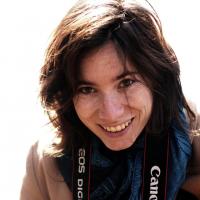
Freelance journalist
Rose Eveleth is a producer, designer, writer and animator based in Brooklyn. She switched from studying krill as a scientist to studying scientists who study krill as a journalist. Now, she tries to explain sciencey stuff for places like The New York Times, Scientific American, Nautilus, The Story Collider, Minute Earth, TED-Ed and OnEarth. She's a regular blogger for Smithsonian magazine's newest online endeavor — Smart News, an editor of all things animated at TED Education, and the special media manager at Nautilus, a new digital magazine about science, culture and philosophy. In her spare time she makes weird collages, bikes, and day dreams about hanging out with a pack of foxes.
Executive Producer, NASA Kennedy Space Center Television
Al Feinberg has served the agency’s Office of Communications in several capacities since joining NASA in late 2002: as Public Affairs Officer and Headquarters media spokesperson supporting the agency’s post-Columbia accident response; as Senior Producer for NASA Television, also in Washington, D.C.; and, since April, at the Kennedy Space Center where, as TV Executive Producer, he has lead the Multimedia and Operations Division. Prior to his NASA service, Al enjoyed a successful, 20-year career in TV news as an Emmy- and Edward R. Murrow Award-winning reporter and anchor.
Science writer, Wyss Institute for Biologically Inspired Engineering, Harvard University
Dan Ferber is an award-winning science journalist. As a freelancer, he wrote for Reader’s Digest, Popular Science, and New Scientist and was a contributing correspondent for Science magazine. As well, he coauthored — with Paul Epstein, MD, of Harvard Medical School — Changing Planet, Changing Health, a book that offers groundbreaking coverage of the public-health impacts of climate change. He recently started working as a science writer for the Wyss Institute for Biologically Inspired Engineering, Harvard University in Boston, Massachusetts. He is also a Tai chi instructor.
Freelance writer
Helen Fields is a freelance science writer in Washington, D.C. She writes about frogs, whales, meteorites, airplanes, and whatever else she and her editors can think of. Her freelance work has appeared in Smithsonian, Science, and New Scientist. Before she started freelancing full time in 2008, she had staff jobs at National Geographic and U.S. News & World Report. heyhelen.com